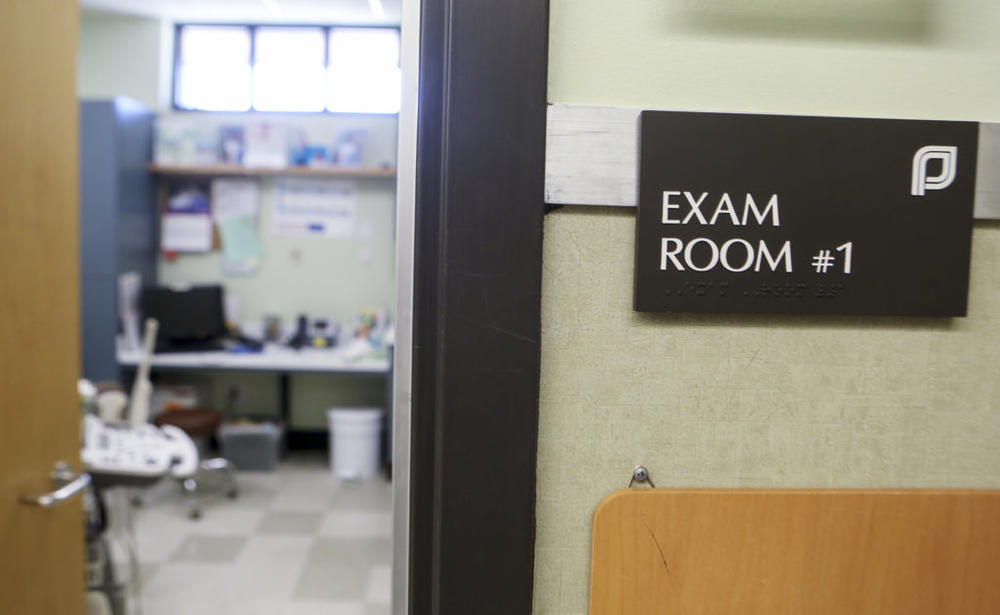
Caption
An exam room at the Planned Parenthood South Austin Health Center in Austin, Texas, U.S. June 27, 2016. File photo by REUTERS/Ilana Panich-Linsman
LISTEN: The Carter Center is reminding Georgians that your health insurance must cover your mental and emotional health as much as it covers your physical health. The new messaging will begin in Albany and Savannah. GPB’s Ellen Eldridge has more.

An exam room at the Planned Parenthood South Austin Health Center in Austin, Texas, U.S. June 27, 2016. File photo by REUTERS/Ilana Panich-Linsman
If your payments for mental health services are higher than for your primary care doctor or you can't see your mental health provider as often, your health care rights in Georgia may have been violated.
This is whether residents have health care coverage through Medicaid or a private insurance provider.
To make sure people — especially in underserved and diverse communities — know about the law, The Carter Center's Mental Health Program is showing insured people what to do to get treatment for depression or substance use disorder.
The campaign started in Savannah and Albany with billboards directing people to www.georgiamentalhealth.com to get more information.
Residents of Georgia are some of the least likely in the nation to access health insurance of any kind, in part because of the state's decision to not expand Medicaid.
In 2022, Georgia passed its Mental Health Parity Act, showing a commitment to addressing behavioral health needs across the state. That includes language in Georgia's law making it clear what violations the state attorney general is enforcing when keeping insurance companies accountable.
The Mental Health Parity and Addiction Equity Act (federal parity law) that was enacted in 2008 requires insurance coverage for mental health conditions, including substance use disorders, to be no more restrictive than insurance coverage for other medical conditions.
The Carter Center Mental Health Program Director Dr. Eve Byrd and Senior Program Associate Sarah Phillips lead the Georgia Parity Collaborative that worked to pass the Mental Health Parity Act. The programs are monitoring parity implementation and partnering on the awareness campaign.
Byrd said that former first lady Rosalynn Carter's legacy of mental health advocacy includes her fight for health insurance parity.
"The world is a different place now, but she was clear about how we needed to carry her legacy forward," Byrd said of Carter, who died this month at age 96. "There's still a lot of work to be done. A lot has been accomplished, but we still have a lot of work to be done."